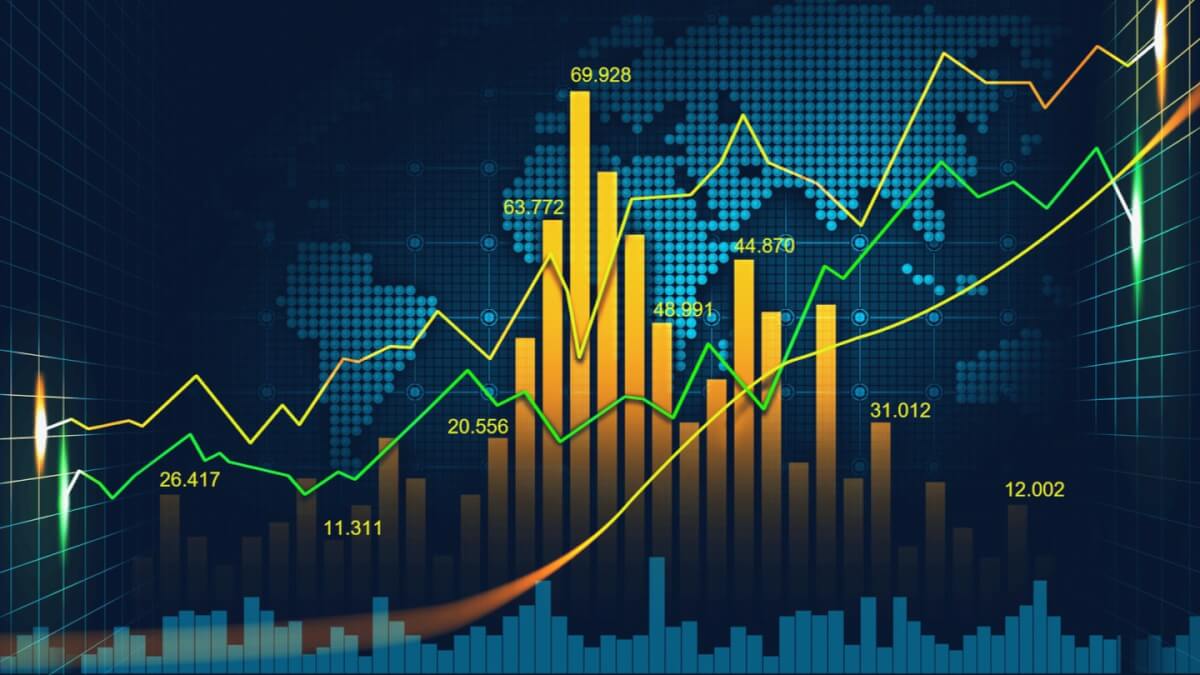
Stocks investing and forex trading are two very different types of trading that are often confused or considered the same by many people. Though they share some similarities, there are also significant differences between them.
Stock trading explained
At its core, stock trading is the buying and selling of company shares on a public exchange. This type of trading allows investors to take advantage of the rising or falling prices of individual stocks, depending on their opinion about a given company’s prospects for success in the future.
For example, if you think that a particular company’s stock price will rise over time as it grows and expands its operations, you might decide to buy shares in that company. If your prediction is correct and the company’s stock prices rise, you can use this opportunity to sell them.
Forex trading explained
In contrast to stock trading, forex trading involves buying and selling the currencies of different countries on an open exchange. Forex traders will buy a currency if they believe its value is likely to increase in the future or sell it if they expect its value to decrease.
In this way, forex traders attempt to capitalise on short-term fluctuations in the market in order to make successful trades. Unlike stock trading, forex traders do not own the underlying asset; instead, they make money by speculating on its future price movements.
The significant differences between stock and forex trading
While stock and forex trading allows investors to find opportunities from rising or falling prices over time, there are significant differences. Stock traders typically work with individual stocks and rely on their research and analysis. In contrast, forex traders have a broader range of currencies to choose from and often use automated trading systems or software to make decisions about their trades.
Furthermore, the volume of daily transactions in the forex market is much greater than that of individual stocks, providing plenty of opportunities for traders to do well in trading. However, this could mean that it can be more difficult to predict movements in the market due to the sheer magnitude and complexity of the activity.
What are the risks associated with stock and forex trading in the UK?
Some risks and challenges come with stock and forex trading. For example, traders in the UK must be aware of the significant fluctuations that can occur in both markets and make careful decisions about their trades to mitigate these risks.
Additionally, traders may experience periods of high volatility or liquidity when trading stocks or currencies, leading to rapid losses if they need to prepare. Finally, investors must do thorough research before entering either market and develop effective strategies to manage their investments over time.
How can you mitigate these risks?
Several strategies can mitigate the risks associated with stock and forex trading. For example, investors should carefully assess their risk tolerance and make decisions about trades based on a thorough understanding of market trends, patterns, and movements.
Additionally, traders may wish to diversify their investments across multiple markets or use automated trading software to manage their positions more effectively. Finally, traders must develop effective money management strategies and follow them consistently over time to protect against losses in the future.
Overall, there are many risks and challenges associated with stock and forex trading in the UK. However, by developing strong research skills, using effective trading strategies, and managing risk effectively, traders can successfully navigate these markets and potentially do well in trading.
Conclusion
Overall, stock and forex trading are very different markets with unique risks and challenges. While stock investing typically focus on individual stocks, analysing market trends and making investment decisions based on their research, forex traders have a broader range of currencies to choose from and use automated software to manage their trades more effectively. However, both markets involve significant risk and require careful decision-making to mitigate potential losses over time. With the right strategies and skills, traders can successfully navigate these complex markets without taking any significant losses.
